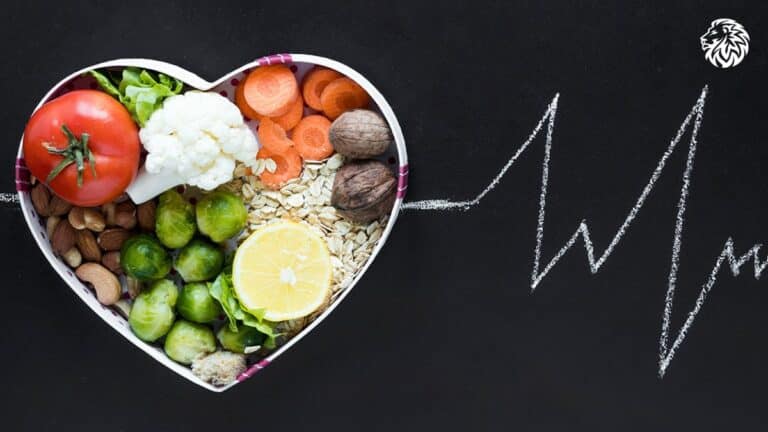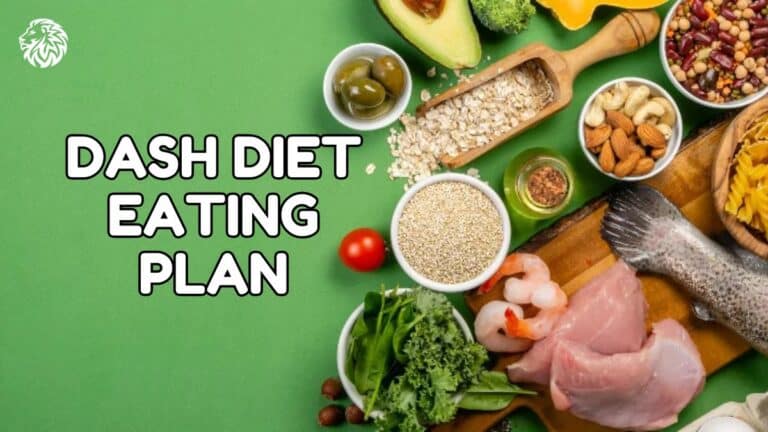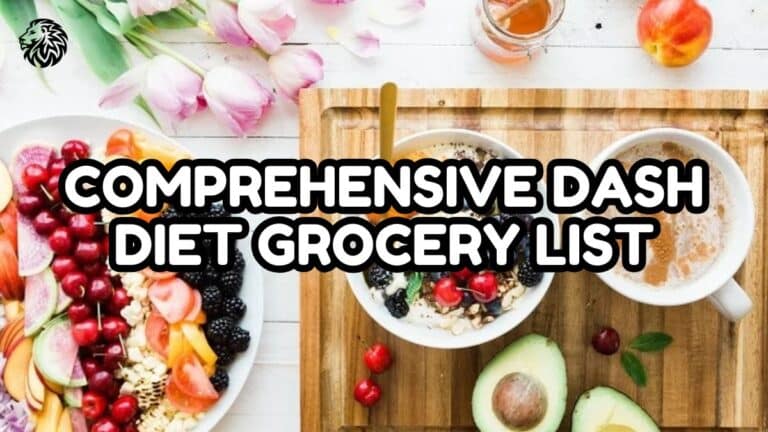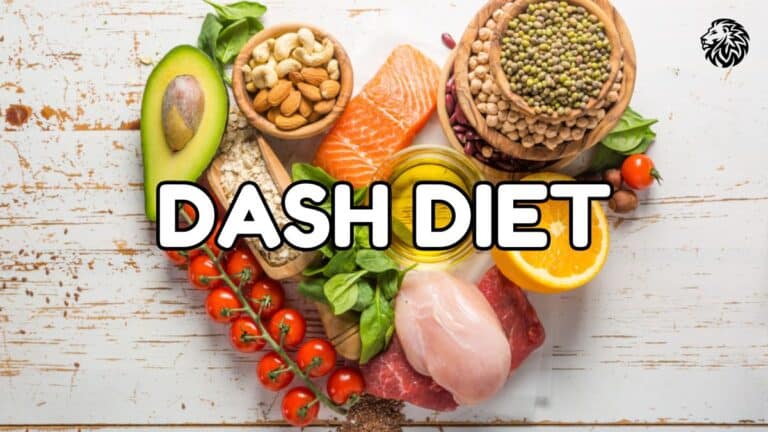The DASH (Dietary Approaches to Stop Hypertension) diet is designed to improve heart health, particularly by lowering blood pressure. But it does more than just help manage hypertension. It has a broad impact on your body, benefiting several systems and contributing to overall well-being. In this post, we’ll explore how the DASH diet works and what it does to your body, from enhancing cardiovascular function to promoting better digestion and weight management.
What Does The DASH Diet Do To Your Body?
1. Lowers Blood Pressure
The primary goal of the DASH diet is to reduce blood pressure, and it does so by emphasizing foods that are rich in nutrients like potassium, calcium, and magnesium—key minerals known to help regulate blood pressure levels. Potassium, for instance, helps balance the effects of sodium, relaxing blood vessel walls and making it easier for your heart to pump blood efficiently.
How It Works: By encouraging the consumption of fruits, vegetables, whole grains, lean proteins, and low-fat dairy, the DASH diet naturally increases your intake of these beneficial minerals. At the same time, it limits foods high in sodium and unhealthy fats, which are known contributors to high blood pressure. When followed consistently, this balance helps lower both systolic and diastolic blood pressure, reducing strain on the cardiovascular system.
2. Promotes Heart Health
The DASH diet’s benefits extend beyond just lowering blood pressure. It helps to improve overall heart health by supporting healthier cholesterol levels. Saturated fats and trans fats, which are limited on the DASH diet, contribute to the build-up of plaque in the arteries, a condition known as atherosclerosis. Over time, this can lead to heart disease, heart attacks, and strokes.
How It Works: By replacing unhealthy fats with heart-healthy fats from sources like nuts, seeds, and olive oil, and focusing on whole foods over processed options, the DASH diet helps keep your cholesterol levels in check. This reduces the risk of plaque formation in your arteries, improving circulation and reducing your risk of heart disease.
3. Helps with Weight Loss
Although the DASH diet was originally designed to control blood pressure, many people also find it useful for weight loss. The diet is naturally low in calorie-dense, processed foods and focuses on nutrient-dense choices that help keep you full without overeating. This makes it easier to maintain a healthy calorie balance and shed excess weight.
How It Works: Because the DASH diet prioritizes whole grains, fruits, vegetables, and lean proteins, you’re consuming foods that are lower in calories but higher in fiber and nutrients. Fiber helps you stay full longer, reducing the urge to snack between meals. Lean proteins also support muscle maintenance while avoiding excess fat. This combination promotes a gradual and healthy weight loss process, which further benefits your cardiovascular system and overall health.
4. Regulates Blood Sugar Levels
Another benefit of the DASH diet is its positive effect on blood sugar regulation. By focusing on whole grains, fruits, and vegetables, and avoiding refined sugars and processed carbohydrates, the DASH diet can help stabilize blood sugar levels. This makes it an excellent choice for people who are at risk for, or already managing, type 2 diabetes.
How It Works: Foods high in fiber, like whole grains and vegetables, take longer to digest, preventing spikes and dips in blood sugar. Additionally, the diet limits sugary snacks and processed foods, which are often the culprits behind blood sugar spikes. The balanced approach to carbohydrates helps maintain a steady energy level and reduces the risk of insulin resistance over time.
5. Supports Kidney Function
The DASH diet is often recommended for people with kidney disease, as it helps reduce strain on the kidneys. High blood pressure and high sodium intake can be particularly harmful to the kidneys, which are responsible for filtering waste from your blood. By keeping blood pressure in check and reducing sodium, the DASH diet can protect kidney health.
How It Works: Potassium, a key nutrient in the DASH diet, plays an essential role in helping the kidneys function properly. It helps balance fluids in the body and supports the elimination of excess sodium. By lowering sodium intake, the DASH diet reduces fluid retention, which decreases the workload on the kidneys and helps them function more efficiently.
6. Improves Bone Health
Strong bones are another benefit of the DASH diet, thanks to its emphasis on calcium-rich foods like low-fat dairy. Calcium is a critical nutrient for maintaining bone density and preventing osteoporosis, particularly as you age. The DASH diet’s high calcium content, combined with its magnesium and potassium-rich foods, creates an ideal environment for bone health.
How It Works: Low-fat dairy products, leafy greens, and other calcium-rich foods provide your body with the building blocks needed for strong bones. In addition, the diet’s focus on whole foods and reduction in processed, high-sodium options helps maintain a healthy balance of minerals in the body, which is important for bone integrity.
7. Boosts Digestive Health
The fiber-rich nature of the DASH diet also supports digestive health. A diet high in fruits, vegetables, and whole grains provides plenty of dietary fiber, which promotes regular bowel movements and reduces the risk of constipation. Over time, a high-fiber diet can also reduce the risk of digestive disorders like diverticulitis and colon cancer.
How It Works: Fiber adds bulk to stool, making it easier for your body to process and pass waste efficiently. This not only helps keep your digestive system regular but also feeds the beneficial bacteria in your gut, which play a critical role in overall health. In contrast, diets high in processed foods often lack adequate fiber, leading to sluggish digestion and increased risk of digestive problems.
8. Reduces Inflammation
Chronic inflammation is linked to a wide range of health issues, including heart disease, diabetes, and certain cancers. The DASH diet helps reduce inflammation by encouraging the consumption of antioxidant-rich fruits and vegetables while limiting processed foods and unhealthy fats that can contribute to inflammation.
How It Works: Antioxidants found in fruits and vegetables help neutralize free radicals, which are molecules that can cause oxidative stress and inflammation in the body. By prioritizing whole, plant-based foods, the DASH diet reduces the intake of inflammatory substances, helping to lower the risk of chronic diseases linked to inflammation.
9. Enhances Mental Well-Being
What you eat can have a direct impact on your mood and mental health. The DASH diet’s emphasis on whole, nutrient-rich foods supports brain health and can help improve mood, memory, and cognitive function. The reduction in sugar and unhealthy fats also contributes to more stable energy levels and better emotional regulation.
How It Works: By providing a steady stream of vitamins, minerals, and healthy fats, the DASH diet helps support neurotransmitter function and brain cell health. Omega-3 fatty acids, often found in fish and nuts included in the DASH diet, are particularly beneficial for cognitive health. Additionally, the diet’s ability to stabilize blood sugar helps prevent energy crashes, which can affect mood and mental clarity.
Conclusion
The DASH diet does far more than just lower blood pressure. By following its principles, you can improve your heart health, manage your weight, support kidney function, enhance bone and digestive health, and even boost your mental well-being. Whether you’re looking to prevent chronic diseases or simply feel better on a day-to-day basis, the DASH diet provides a balanced, sustainable approach to eating that benefits your entire body.







